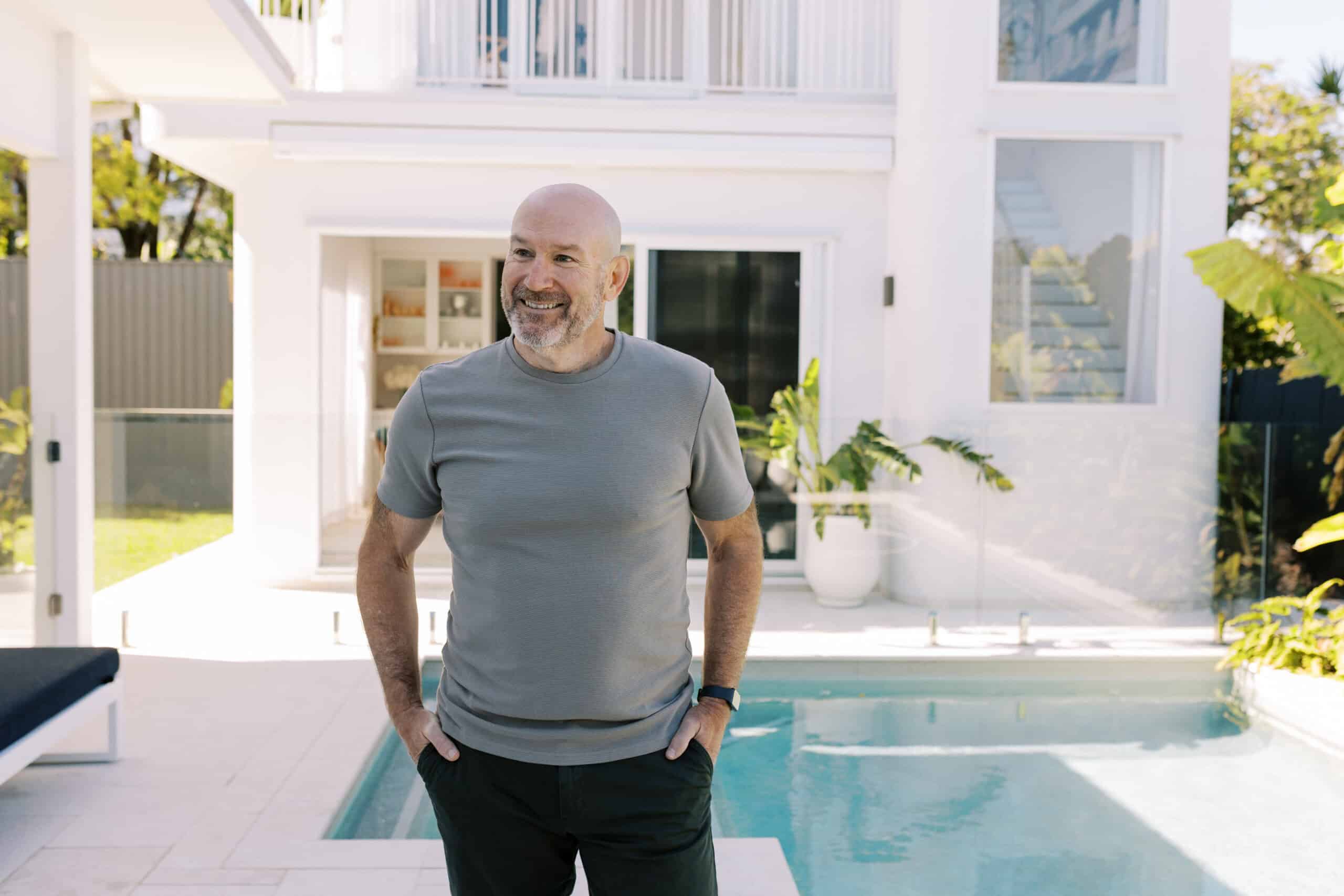Intermittent Fasting and Sleep
The importance of sleep is likely not news to you. Getting eight hours of quality sleep a night can support your immune system, aid weight management, improve your mood and energy levels and even boost your sex drive. If you’ve found that nights of decent shut-eye have become few and far between, the answers may lie in your diet. Research on intermittent fasting and sleep has revealed that switching up your eating pattern might just fix your sleeping pattern. Read on to find out more about the link between intermittent fasting and sleep.
The importance of good sleep
We spend around a third of our lives either sleeping or attempting to, so it’s clear that making the most of your zzz’s should be of the utmost importance.1 Despite this, 71% of adults are still not getting the recommended seven to nine hours of rest each night.
Good sleep balances on three main pillars of rest: how much sleep you get, the quality of uninterrupted, refreshing sleep, and a consistent sleep schedule. If you optimise all three, you’re onto a winner and are sure to reap the following benefits:
- Improved concentration, attention and decision-making abilities
- Processed memories and reduced risk of dementia2
- Supported immune system and heart, reducing your risk of heart disease3
- Restored insulin sensitivity and reduced risk of type 2 diabetes4
- Lowered hunger hormone, ghrelin, reducing your risk of obesity by 41%5
The connection between good sleep and overall health is one of the reasons we’ve shared so many articles on it, and created mindfulness content for our Programme to help promote rest. Which brings us to our next point about intermittent fasting and sleep.
Are you looking for more support on your weight loss journey? The Fast 800 Programme is a personal trainer, a nutritionist, a support network and more to help you lose weight and keep it off. Learn more and get started today with a 7-day free trial.
7-DAY FREE TRIAL
Intermittent fasting and sleep
To begin improving your sleep and reap those all-important health benefits, you may want to learn about the incredible connection between intermittent fasting and sleep.
Fasting intermittently has been shown to improve all three pillars of good sleep, and the good news is that research suggests it won’t take long before noticing changes. A 2003 study measured participants’ sleep using a polysomnography before and after just seven days of fasting. The results indicated that fasting short-term can improve sleep quality by reducing restlessness, awakenings during the night and leg movement during sleep. This was in addition to daytime improvements in concentration and emotional balance.6
Similarly, a 2019 study by the Salk Institute found that a 10-hour eating window for overweight participants saw reductions in blood sugar levels, blood pressure, waist size, as well as longer and less interrupted sleep.
In general, overeating during the day and too close to bedtime has been shown to compromise healthy sleep. This can result in a vicious cycle of poor sleep leading to poor diet choices and so on. However, going to sleep on a relatively empty stomach (which happens when you extend your fasting window), allows your digestive system to align with your brain and both clock off for sleep, helping improve decision making and reduce the hunger hormone, ghrelin. Furthermore, intermittent fasting has been shown to raise the levels of the sleep-promoting hormone, melatonin, which helps you fall asleep quicker and stay asleep longer.
So we know now the beneficial relationship between intermittent fasting and sleep, but what exactly is intermittent fasting, and how can you get started?
Join our email community
Learn more about The Fast 800 approach to healthy living by receiving our free content, health tips and recipes as well as exclusive offers, delivered straight to your inbox.
What is intermittent fasting?
There are multiple methods of intermittent fasting, but two in particular are most popular on The Fast 800 Programme:
TRE (Time restricted eating)
This is where you reduce the time window in which you consume your day’s calories. Most popular timings are 12:12 (fasting for 12 hours, eating within 12 hours), 14:10 (14 hours fasting, 10 hours eating), or 16:8. Most people like to eat three small meals or two larger meals in their eating windows. To learn more about this method head here, or try a two-meal-a-day plan on our Programme.
5:2 Method
The 5:2 method involves two days a week consuming just 800 calories (fasting days) and not counting calories but consuming a balanced diet on the other five days. We recommend eating a Mediterranean-style diet for maximum benefits. The New 5:2 approach on our Programme walks you through everything you would need to try this method.
With a library of learning articles, a dedicated ‘TRE and fasting’ group in our interactive Community, and advice from our expert Health Coaches, we have all the answers you’d need on our Programme. When it comes to intermittent fasting and sleep we really have you covered, so try a 7-day free trial to get started.
How to do intermittent fasting
When embarking on a new eating pattern lifestyle change, it can be tricky to know where to start. Thankfully, we have a few top tips to help get you started to help make your journey easier and more enjoyable:
- Gradually extend your fasting window: There is really no need to suddenly drastically restrict your eating times when starting intermittent fasting. Starting with a 12:12 method (fasting for 12 hours and eating within a 12 hour window) can help ease yourself in. Then build up to 14:10 or 16:8 when you feel more confident.
- Don’t forget your liquids: Staying hydrated is key for both intermittent fasting and sleep. Water is great, however herbal teas can also help settle a sweet tooth or craving during a fast. Making use of fasting-friendly supplement shakes, like The Fast 800 Shakes, can also be great drinks for busy days when you don’t have time to make a nutritious meal, which brings us to our next tip.
- Consider trying supplements: When fasting, you need to ensure you’re still getting in the proper amount of nutrition, just packed into a smaller eating window. If you’re concerned you might not get enough in your diet while intermittent fasting, try a supplement like a shake or a multivitamin.7
- Seek support: When making lifestyle changes like adopting a new eating pattern, it can be helpful to have support from professionals to keep you steered in the right direction. Our Programme has intermittent fasting plans, like The New 5:2, that can assist with meal planning, organising your shopping lists, recipe inspiration, member-only Health Coach support and more, all developed by our in-house experts. That’s sure to help you rest a little easier.
- Eat plenty of protein: When intermittent fasting, it’s still essential to fit in 60g of protein to your day, so prioritise it in your eating window. Protein helps you stay full and energised while your body gets used to eating fewer meals. Here are some high protein and fibre foods to break your fast with, and below is a little inspiration if you need some fasting-friendly meal ideas that support intermittent fasting and sleep.
Fasting-friendly recipes to support good sleep:
Our Programme houses plenty of recipes that are ideal for supporting intermittent fasting and sleep. Here’s just a taste to help get you started so you can enjoy a little ‘mmm’ with your zzz’s:
Healthy fats like Omega-3 fatty acids have been shown to improve sleep duration and quality.8 As we can’t naturally produce Omega-3 fatty acids, we need to find them in foods like oily fish, eggs and avocados. This fasting-friendly meal is perfect to break a fast and keep you going until a night of good sleep.
Studies show that eating plenty of fibre has been linked with deeper and more restorative sleep, so prioritise fibre on fasting days.9 Recipes like this Saag and Chickpeas dish are ideal for intermittent fasting and sleep, the tasty flavours are just a bonus!
As we said, getting in your full 60g of protein a day is vitally important on fasting days. A fascinating 2023 animal study showed that a high protein diet improves sleep,10 so give this protein-rich recipe a go on your next fasting day. We have plenty more vegetarian recipes suitable for intermittent fasting on our Programme, so make sure to check those out if you’re exploring intermittent fasting and sleep.
Sign up for your 7-day free trial of The Fast 800 Programme, and you could be like the participants in the 2003 study who discovered improvements in sleep after just seven days of intermittent fasting. Happy fasting and happy dreaming!
Aminoff MJ, Boller F, Swaab DF. We spend about one-third of our life either sleeping or attempting to do so. Handb Clin Neurol. 2011;98:vii. doi: 10.1016/B978-0-444-52006-7.00047-2. PMID: 21056174.
Sabia S, Fayosse A, Dumurgier J, van Hees VT, Paquet C, Sommerlad A, Kivimäki M, Dugravot A, Singh-Manoux A. Association of sleep duration in middle and old age with incidence of dementia. Nat Commun. 2021 Apr 20;12(1):2289. doi: 10.1038/s41467-021-22354-2. PMID: 33879784; PMCID: PMC8058039.
Nagai M, Hoshide S, Kario K. Sleep duration as a risk factor for cardiovascular disease- a review of the recent literature. Curr Cardiol Rev. 2010 Feb;6(1):54-61. doi: 10.2174/157340310790231635. PMID: 21286279; PMCID: PMC2845795.
Lee DY, Jung I, Park SY, Yu JH, Seo JA, Kim KJ, Kim NH, Yoo HJ, Kim SG, Choi KM, Baik SH, Lee SK, Shin C, Kim NH. Sleep Duration and the Risk of Type 2 Diabetes: A Community-Based Cohort Study with a 16-Year Follow-up. Endocrinol Metab (Seoul). 2023 Feb;38(1):146-155. doi: 10.3803/EnM.2022.1582. Epub 2023 Feb 6. PMID: 36740966; PMCID: PMC10008656.
Bacaro V, Ballesio A, Cerolini S, Vacca M, Poggiogalle E, Donini LM, Lucidi F, Lombardo C. Sleep duration and obesity in adulthood: An updated systematic review and meta-analysis. Obes Res Clin Pract. 2020 Jul-Aug;14(4):301-309. doi: 10.1016/j.orcp.2020.03.004. Epub 2020 Jun 8. PMID: 32527625.
Michalsen A, Schlegel F, Rodenbeck A, Lüdtke R, Huether G, Teschler H, Dobos GJ. Effects of short-term modified fasting on sleep patterns and daytime vigilance in non-obese subjects: results of a pilot study. Ann Nutr Metab. 2003;47(5):194-200. doi: 10.1159/000070485. PMID: 12748412.
Zhang S, Liu SX, Wu QJ, Wang ZH, Liu H, Dong C, Kuai TT, You LL, Xiao J. Association of dietary fiber with subjective sleep quality in hemodialysis patients: a cross-sectional study in China. Ann Med. 2023 Dec;55(1):558-571. doi: 10.1080/07853890.2023.2176541. PMID: 36752281; PMCID: PMC9930787.
Yokoi-Shimizu K, Yanagimoto K, Hayamizu K. Effect of Docosahexaenoic Acid and Eicosapentaenoic Acid Supplementation on Sleep Quality in Healthy Subjects: A Randomized, Double-Blinded, Placebo-Controlled Trial. Nutrients. 2022 Oct 5;14(19):4136. doi: 10.3390/nu14194136. PMID: 36235788; PMCID: PMC9573173.
Zhang S, Liu SX, Wu QJ, Wang ZH, Liu H, Dong C, Kuai TT, You LL, Xiao J. Association of dietary fiber with subjective sleep quality in hemodialysis patients: a cross-sectional study in China. Ann Med. 2023 Dec;55(1):558-571. doi: 10.1080/07853890.2023.2176541. PMID: 36752281; PMCID: PMC9930787.
Carvalho-Santos Z, Ribeiro C. Do flies dream of protein? How the gut regulates sleep depth. Cell Metab. 2023 May 2;35(5):732-734. doi: 10.1016/j.cmet.2023.04.001. PMID: 37137287.











